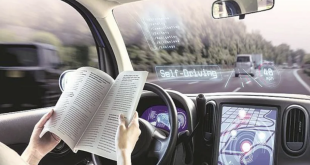As public demand for sustainable transport solutions continues to rise worldwide, electric vehicles (EVs) are increasingly being hailed as some of the most innovative and environmentally responsible forms of personal transportation available today. Their popularity is soaring, with a remarkable surge in global sales reaching 10 million in 2022. Yet, despite this upward trend, numerous myths about EVs persist and cast doubts in the minds of potential buyers.
This article aims to dispel these misconceptions and offer a clearer picture of the reality of EVs. By addressing the most common myths mentioned below, it seeks to provide an informed perspective on the capabilities and benefits of electric vehicles. Hopefully, these clarifications can encourage a more accurate understanding of the role of EVs in society’s shift towards sustainable transportation.
There’s Not Enough Charging Infrastructure
The myth that electric vehicles suffer from a lack of charging infrastructure is one of the most common concerns that discourage would-be EV buyers. However, while it’s true that EV charging technology is still relatively young, it’s also becoming increasingly ubiquitous in many countries. As of January 2023, the UK alone boasted 37,055 public EV charging devices—and the numbers steadily rising. The growth in the number of rapid chargers, which now comprise a significant portion of EV charging devices, further enhances convenience for EV drivers.
Moreover, EV owners now have the option for an EV home charging point installation—an innovation that has revolutionised the notion of charging. The more people install charging points in their homes, the less likely they’ll be to depend on public charging stations. This development is not only convenient but also efficient, as EV owners can charge their vehicles overnight and have them ready for use the next day. This growing trend of home charging facilities in turn helps bridge the gap in charging infrastructure and ensure that the needs of EV owners are met more effectively.
EVs Take Too Long to Charge
Another persistent EV myth is the belief that electric vehicles require an excessively long time to charge. Thanks to rapid advancements in EV charging technology, this misconception is gradually being overturned. Fast-charging stations are now fairly common and can recharge an EV’s battery to 80% in as fast as 30 minutes. This development has been especially game-changing for long-distance travellers who require quick charging solutions.
In addition to public fast-charging stations, the option of home charging has helped make owning an EV significantly more convenient. EVs can now be charged overnight in the comfort of one’s home, much like a mobile phone. This shift towards convenient, accessible charging options is redefining the EV experience, making it more appealing and practical for a broader range of consumers.
EVs Have Limited Range
While it’s true that early electric cars were unable to travel far on a single charge, recent advancements in EV technology have significantly extended their driving range. For instance, many modern EV models now offer ranges well over 320 kilometres on a single charge, with some even exceeding 480 kilometres. This makes EVs more suitable for a variety of driving needs, from daily commutes to longer journeys.
The growing confidence in EV driving range is reflected in the sales of models like Tesla’s Model Y, which led the market in 2023 with over 772,000 units sold. This level of consumer trust underscores the progress EVs have made in dispelling range anxiety. Additionally, the expanding network of public charging stations further alleviates concerns because drivers now have easy access to charging points during longer trips.
EVs Perform Worse Than Gasoline Cars
Contrary to the myth that electric vehicles underperform compared to their gasoline counterparts, EVs are increasingly recognized for their superior performance. Some of the most notable advantages of electric vehicles are their instant torque and rapid acceleration. These features provide a smoother driving experience, as well as enable EVs to outperform many gasoline cars in terms of responsiveness and agility.
The market trends reflect this reality, too, with electric vehicles gaining a significant share of the automotive market. In early 2023, EVs were expected to account for 18% of global car sales, a stark increase from just a few years ago. This shift is not just a result of environmental considerations but also an indication that more consumers are recognising EVs as high-performing and reliable vehicles. With continuous improvements in battery technology and powertrain efficiency, electric vehicles are setting new standards in automotive performance and challenging the long-held belief that they are inferior to traditional vehicles.
EVs Can’t Handle Cold Weather
The myth that electric vehicles cannot perform well in cold weather is another misconception that needs addressing. It is true that cold temperatures can affect the efficiency of EV batteries, potentially reducing their range. For example, studies have shown that an EV with a rated range of 250 miles might see its range reduced to 150 miles in 20-degree weather. However, this impact is not unique to electric vehicles; gasoline cars also experience reduced efficiency when the temperature drops.
To combat this, modern EVs are equipped with advanced battery management systems that help mitigate the effects of cold weather. For instance, many 2023 EV models come with battery preconditioning features that warm the battery before charging to enhance its efficiency in colder temperatures. Additionally, drivers can employ strategies such as starting the vehicle while it’s still plugged in. This practice preheats the battery using grid power rather than the car’s own energy reserves. With these technological advancements, EVs are increasingly capable of maintaining robust performance even in colder climates.
A close examination of the myths surrounding electric vehicles reveals that scepticism is often based on outdated perceptions. Continuous advancements in technology have enabled EVs to rapidly overcome former limitations and offer enhanced range, performance, and convenience. As society moves towards a more sustainable future, the evolving narrative of electric vehicles stands as a testament to innovation and environmental progress.
 Automotive Blog Automotive Blog brings you the latest news, car reviews and information on the automotive industry.
Automotive Blog Automotive Blog brings you the latest news, car reviews and information on the automotive industry.




